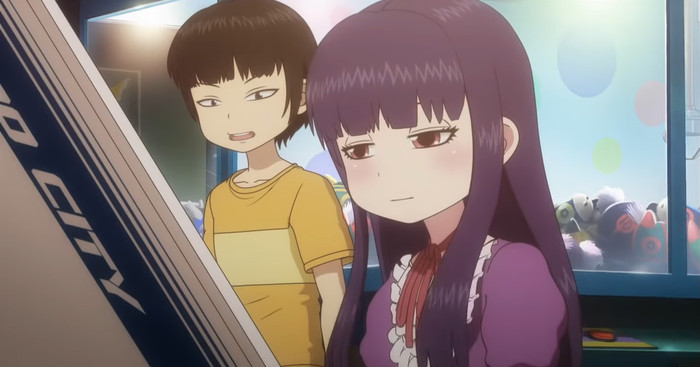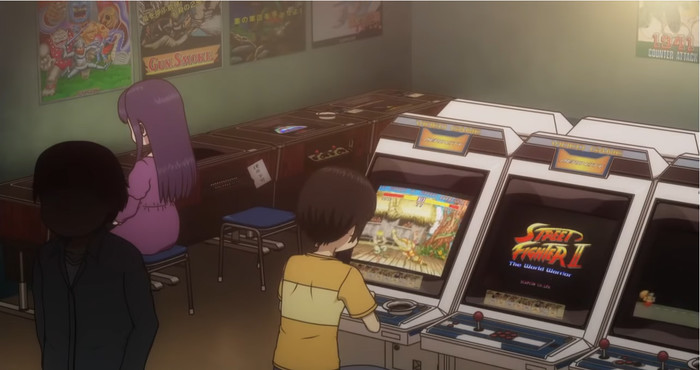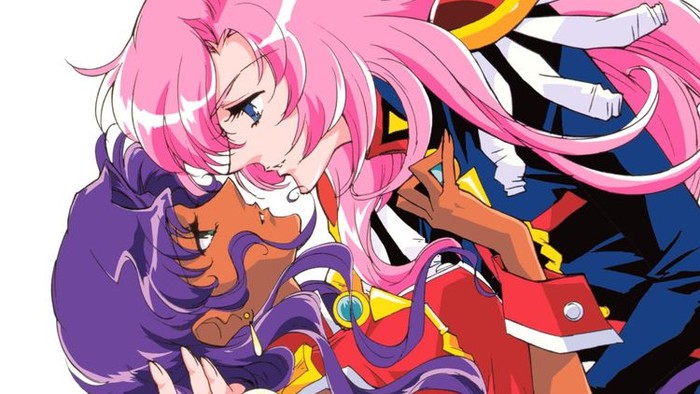Interview: J.C. Staff Producer Yuji Matsukura
by Kyle Cardine,If anyone has been around the anime industry block, it is J.C. Staff's Yuji Matsukura. Matsukura has worked with J.C. Staff to produce some of their most premiere titles from Revolutionary Girl Utena, A Certain Magical Index, Toradora!, and Food Wars! Shogkugeki no Soma. Hi Score Girl, one of his newest projects, premiered at Otakon this year and Anime News Network spoke with him about capturing the feeling of the 90s, the staying power of Utena and Matsukura's legacy as a producer.

ANN: First, can you explain your role in Hi Score Girl?
MATSUKURA: Firstly, I am the producer. What I do is as a producer is decide what type of anime Hi Score Girl will become, like what kind of direction we're going to go with. We talk with the director and whatnot to see what kind of direction we should go. I also help out with the more technical stuff.
With Hi Score Girl in particular, it was first announced in back 2013 – were you part of the production back in 2013?
Yes, I was there back in 2013.
What changed the most from the initial planning in 2013 to now?
The biggest change from 2013 to now is the fact that we are doing things in 3D. Back in 2013, we were planning on doing it in 2D. That was mainly because back then we thought that on a technical level 3D was not a good idea for us.

Do you see J.C. Staff going that direction? Using more 3D in anime like Hi Score Girl?
No, not really. Hi Score Girl is a really interesting case where making it in 3D made a lot more sense. The biggest thing for Hi Score Girl is the recreation of the Japanese game center. In the game center, we have lots of those old school arcade cabinets. Those cabinets are something that we take great care in, placing the graphics of the game onto the screen. In terms of that, it would make sense for the characters to be in 3D because it matches with what we want to do with the recreation of the Japanese arcade center. The animation may not work as well in 3D, but that's another issue. It's not that we want to make more 3D stuff, it's just that it was the most appropriate for what we wanted to do. Also, if it was in 2D we'd have more say when it comes to the finer points, the fine details. This you can see in something like Food Wars! or DanMachi, where we care a lot more about the fine details of the animation. That's not something you'd be able to do in 3D.
One thing I noticed in the trailers is the captured gameplay footage. Did somebody have to go back and play those games for the footage?
Yes, we are actually taking video footage of actual players playing the games. As you might have noticed, the characters are supposed to be extremely good at the games they are playing. So you might notice in the Street Fighter II scenes, they're actually played by Japan's best Street Fighter II players. That's something you may want to look forward to.

Did you recruit Daigo?
[Laughs] We are getting good players for specific characters. For example there is a character who is supposed to be very good at Zangief, so we got the best Zangief player. And someone is supposed to be good at Guile, so we got the best Guile player. But Daigo is not in it.
I know you're a big fan of games yourself. I think every photo I've seen of you, you're wearing a video game shirt. From your video game expertise, what are you hoping to show within Hi Score Girl?
[Laughs] I actually come from the game industry and I've created some games too. Being a guy from the game industry back then, I am very enthusiastic about games. In Japan, people who like anime are generally knowledgeable about games too. There are certain game in-jokes in [the show]. Like, you'd be able to say “oh there was that kind of trick where you could keep on throwing that guy”. I'd like to use my knowledge to recreate the games from back then. One thing I'm really into doing in Hi Score Girl is giving the game centers individual characteristics. For example, one game center might focus a lot on fighting games, while another might have action and shooting games. I do feel very enthusiastic in recreating that 90s feel. Also I would like to mention we are doing our best to recreate the world the manga author Rensuke Oshikiri has made. We are also coordinating the show with the players of said games. We have the staff of the game center Mikado at Baba Train Station in Japan. This is a recreation of the game center in conjunction with what all the staff at say Mikado, the players and the original manga artist.

I want to ask about Revolutionary Girl Utena. You worked on both the show and movie correct?
Yes.
Nozomi just released a 20th anniversary collection and there was also a musical recently in Japan. From your perspective, why has Utena stayed so popular?
Back then with the main staff, especially with Ikuhara, I was able to build something that was very characteristic of how young I was back then. Being young, I was able to do a lot of things I probably wouldn't be able to do right now. It's also something that back then we were able to make something a bit more distinct. Something that did not exist as much back then and it's still true right now. That might be the reason Utena is still relevant today. It's something you don't have similar things to. It's a thing on its own per se.
Last question, and I'm glad you brought up when you were young working on Utena, because there are lots of reports about how hard it can be for young people in the anime industry. So I'm wondering what are you doing or what is J.C. Staff doing to help young producers and animators now?
I guess with that question, if it's in terms of education we do our best to tell the younger people that it's ok to fail and just do their best; that it's important to do their best even if they fail. But realistically speaking, no one really wants to fail, do they? We live in a time where failing is not as easy as it was before. That might be one of the difficulties in this day and age. I always tell people to make things a lot more selfishly, make things you like, but maybe it's also the fact that I'm still here that young people don't get their spotlight. With that said, I produce our titles at J.C. Staff, but I'm not as young as I used to be so maybe in the future I will gradually pass things onto younger people and get ready to kind of fade away.
Our thanks to Otakon and Yuji Matsukura for this opportunity.
discuss this in the forum (1 post) |